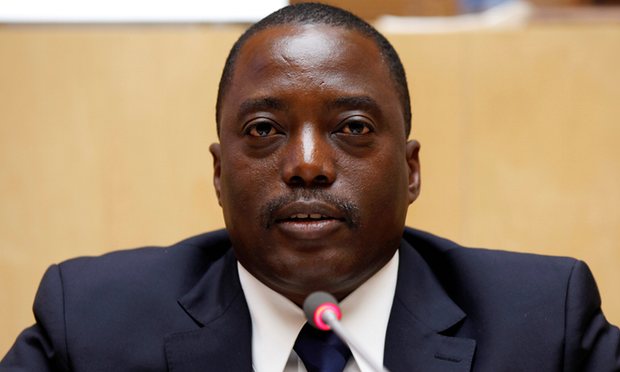PBS: Escaping Eritrea … [Read More...] about ካብ ውሽጢ ቤት ማእሰርታት ኤርትራ
The failure of democracy in Africa
Sunday 23 October 2016 | The Observer
The Democratic Republic of Congo is the latest country disintegrating because a leader wants to hang on to power

Two decades ago, the Democratic Republic of Congo, sub-Saharan Africa’s largest country, was engulfed in what became known as Africa’s Great War, a conflict that drew in half-a-dozen neighbouring countries and raged for five years from 1998.
The conflict and its aftermath cost the lives of an estimated 5.4 million people, mainly from starvation and disease. This epic disaster was largely ignored outside Africa, even though it was the developed world’s insatiable demand for the DRC’s mineral riches that helped to fuel it.
The war was halted, in part, by the introduction of a new constitution and a democratic system of governance, replacing decades of Mobutu Sese Seko’s brutal dictatorship. In 2006 Joseph Kabila was confirmed as DRC president by popular vote, although the fairness of the election was widely disputed. In 2011 he was re-elected. Again, the results were hotly contested. A key factor in their acceptance was his pledge to honour the constitution and refrain from seeking a third term.
The DRC’s next presidential election is due next month. It isn’t going to happen. A court last week upheld a request by the election commission that the poll be postponed, ostensibly because voter rolls are incomplete. A “national dialogue” by the ruling coalition and involving fringe parties and civic groups, but boycotted by the main opposition and Catholic church, also agreed a delay until at least April 2018. In effect, Kabila and his security force backers have compromised the constitution and the judiciary and engineered a silent coup. His solemn 2011 promise has been broken.
This shameless subversion of the democratic process (parliamentary and provincial polls have also been put off) was condemned by the main opposition party, the UDPS, as a “flagrant violation”. Rassemblement (Gathering), the multi-party opposition organisation, reacted with fury and called a general strike last Wednesday. Kabila’s attempt to cling to power threatens the DRC’s hard-won and still precarious stability. Worse, it risks a return to national and regional upheaval, violence and war. At least this time the world is paying more attention. Maman Sambo Sidikou, the senior UN official in the country, warned the UN security council last week that “large-scale violence is all but inevitable” if the impasse is not resolved. “The tipping point could be reached very quickly.” After related clashes in Kinshasa last month, in which at least 50 people died, the US imposed limited sanctions on army generals implicated in human rights abuses. On Monday EU foreign ministers also agreed to pursue possible punitive measures.
Matters are not as clear cut as they might seem. Kabila denies he wanted the delay. Analysts suggest the president, thrust into office after his father was assassinated in 2001, is a frontman for the security apparatus. The opposition is fragmented and its readiness to resort to protests often leads to violence. Concerns over stability by countries such as France and Belgium are not wholly disinterested, commercially speaking. But that the leadership of another African country appears ready to ride roughshod over democracy and laws is clear. The DRC has never had a peaceful transition of power since independence in 1960. This is why term limits are so important. Last year the presidents of Burundi, Rwanda and Congo-Brazzaville overrode constitutional requirements that they step aside. In Burundi’s case, violence and displacement resulted. In Uganda, Yoweri Museveni looks determined to go on for ever. Robert Mugabe’s Zimbabwean “presidency for life” and José Eduardo dos Santos’s Angolan ascendancy provide further examples of endemic disregard for democratic principles.
It would be a mistake to think Africans care less about self-serving, corrupt and irresponsible politicians than Europeans or Americans. The African Union has repeatedly stressed peaceful political transitions in embedding democratic habits. Studies show African voters value democratic systems but are increasingly frustrated at their malfunctioning and wilful subversion.
Nigeria demonstrated last year how it could be done. But South Africa, ruled since apartheid’s end by a single, overpowerful party, is less of a shining light. Its reported decision to renounce the International Criminal Court is another sign that too many African politicians would rather jettison democratic and legal norms than subject themselves to scrutiny and public judgment.
